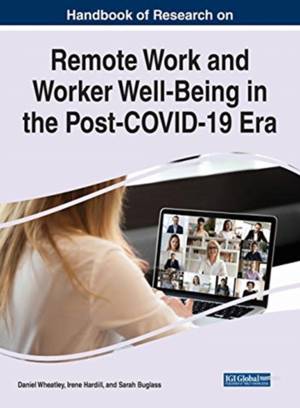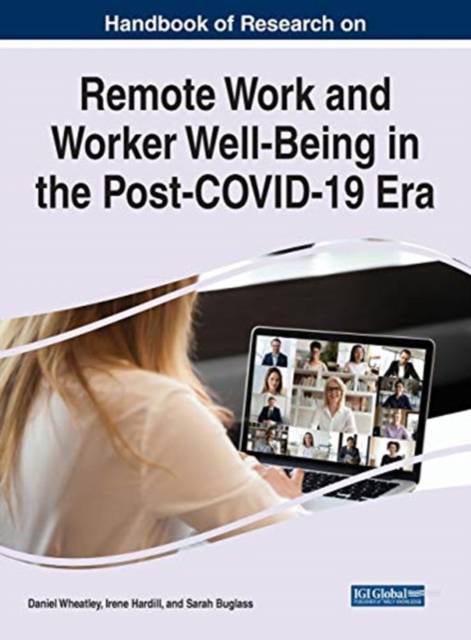
Bedankt voor het vertrouwen het afgelopen jaar! Om jou te bedanken bieden we GRATIS verzending (in België) aan op alles gedurende de hele maand januari.
- Afhalen na 1 uur in een winkel met voorraad
- In januari gratis thuislevering in België
- Ruim aanbod met 7 miljoen producten
Bedankt voor het vertrouwen het afgelopen jaar! Om jou te bedanken bieden we GRATIS verzending (in België) aan op alles gedurende de hele maand januari.
- Afhalen na 1 uur in een winkel met voorraad
- In januari gratis thuislevering in België
- Ruim aanbod met 7 miljoen producten
Zoeken
Handbook of Research on Remote Work and Worker Well-Being in the Post-COVID-19 Era
Daniel Wheatley, Sarah Buglass
Hardcover | Engels
€ 412,45
+ 824 punten
Omschrijving
With the introduction of policies to combat COVID-19, far greater numbers of employees across the globe-including those with limited job autonomy-have moved to undertake their entire job at home. Although challenging in the current climate, embracing these flexible modes of work such as working at home, including relevant investment in technology to enable this, will not only deliver potential organizational benefits but also increase the adaptability of the labor market in the short and longer terms. Although perhaps not the central concern of many in the current climate, "good" home-based work is achievable and perhaps even a solution to the current work-based dilemma created by COVID-19 and should be a common goal for individuals, organizations, and society. Research also has shifted to focus on the routines of workers, organizational performance, and well-being of companies and their employees along with reflections on the ways in which these developments may influence and alter the nature of paid work into the post-COVID-19 era. The Handbook of Research on Remote Work and Worker Well-Being in the Post-COVID-19 Era focuses on the rapid expansion of remote working in response to the global COVID-19 pandemic and the impacts it has had on both employees and businesses. The content of the book progresses understanding and raises awareness of the benefits and challenges faced by large-scale movements to remote working, considering the wide array of different ways in which the large-scale movement to remote working is impacting working lives and the economy. This book covers how different fields of work are responding and implementing remote work along with providing a presentation of how work occurs in digital spaces and the impacts on different topics such as gender dynamics and virtual togetherness. It is an ideal reference book for HR professionals, business managers, executives, entrepreneurs, policymakers, researchers, students, practitioners, academicians, and business professionals interested in the latest research on remote working and its impacts.
Specificaties
Betrokkenen
- Auteur(s):
- Uitgeverij:
Inhoud
- Aantal bladzijden:
- 464
- Taal:
- Engels
Eigenschappen
- Productcode (EAN):
- 9781799867548
- Verschijningsdatum:
- 16/04/2021
- Uitvoering:
- Hardcover
- Formaat:
- Genaaid
- Afmetingen:
- 216 mm x 279 mm
- Gewicht:
- 1351 g

Alleen bij Standaard Boekhandel
+ 824 punten op je klantenkaart van Standaard Boekhandel
Beoordelingen
We publiceren alleen reviews die voldoen aan de voorwaarden voor reviews. Bekijk onze voorwaarden voor reviews.









